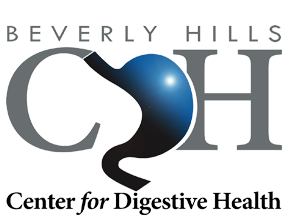What Is an Upper Endoscopy?
BOOK APPOINTMENTAn endoscopy will give a clearer view of the inside of the digestive tract than an x-ray or CT scan, and is more useful for diagnosing cancers. An endoscope can also be used to perform some procedures. Polyps can be removed and tissue samples taken, blocked passages can be cleared, and bleeding from an ulcer or cancer can be stopped.
During an endoscopy, you will wear a hospital gown and lay on your left side. If you wear glasses or dentures, you will be asked to remove them. To minimize discomfort during the examination, a local anesthetic may be applied to the back of your throat, and you will be given an intravenous sedative and pain reliever. From there, the doctor will insert the endoscope into your mouth and down through the esophagus. Most endoscopies only last 15-20 minutes.
Most of the time, endoscopies are outpatient treatments. Because of the sedatives, however, you will not be able to drive home after the procedure and will be drowsy and unable to drive for the next eight hours. Your throat may feel sore afterwards. After you are released, your gastroenterologist will send the test results to your primary care doctor so that the next steps in your healthcare can be planned.
An upper endoscopy is a safe diagnostic tool to help get a clearer understanding of the conditions in your upper digestive tract. While it is not the most pleasurable activity, it is nothing to be afraid of. If you have an appointment for one coming up, rest assured that your gastroenterologist will do everything he can to make the process as comfortable and unintimidating as possible.
Our Blogs
If Something Does Not Feel Right, It May Be Time to Get Answers
Ongoing bloating, constipation, rectal discomfort, or reflux should not be ignored. These symptoms may point to conditions that benefit from proper evaluation and care. We treat concerns such as constipation, hemorrhoids, fecal incontinence, and pelvic floor...
From Evaluation to Treatment: Looking Ahead to Your GI Visit
Digestive health concerns can affect your comfort, confidence, and daily life. At BH Center for Digestive Health, we provide a full range of gastrointestinal services to help identify, manage, and treat GI conditions with care and clarity. From colonoscopy and EGD to...
Wishing You a Happy 2026 New Year from Dr. Davidson and Team!
✨ Welcome, 2026! ✨ A new year brings fresh beginnings, renewed focus, and a chance to put your health first. As we step into 2026, let this be the year you listen to your body, prioritize your digestive wellness, and choose care you can trust. At BH Center for...
Call to Schedule
Our office is available to answer your questions and evaluate your symptoms.

Phone
(310) 855-0222
Fax: (949) 404-6467
Hours
Mon - Fri: 9am – 5pm
Sat - Sun: Closed